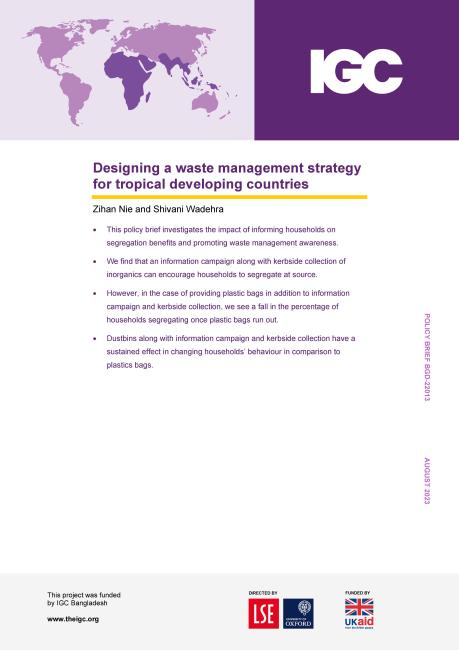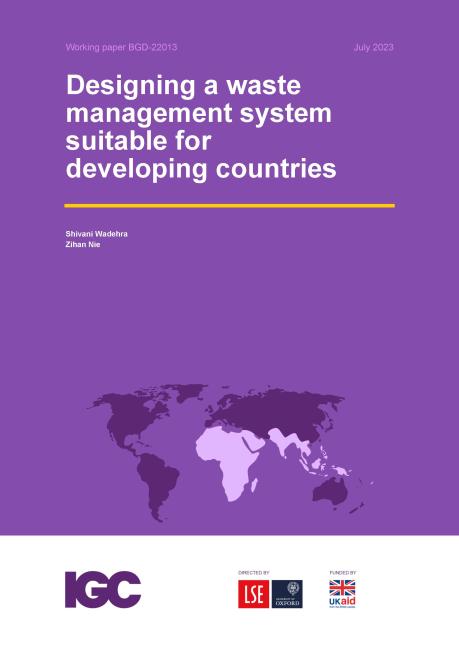Does provision of information on efficient waste management affect households' disposal behaviour?
Segregation at source is crucial for efficient waste management. It prevents contamination, lowers processing costs, and resolves the chicken-and-egg problem of waste management. This project investigates the impact of informing households on segregation's benefits and promoting waste management awareness.
Segregation at source is considered as the first step to efficient waste management. It not only ensures that organic waste is not contaminated with inorganics but also reduces the cost of processing waste. In waste management, households often point out that in absence of processing facilities, it is futile to segregate at source and waste processing facilities often fail because of lack of segregation at source. In essence, waste management is often plagued with a chicken and egg problem: should segregation or waste processing plants come first?
The project involves informing households on the benefits of segregating at source, publicising the role of the treatment plant and sending reminders to segregate waste. Specifically, a baseline survey will be conducted to capture households' knowledge, attitude and practices towards waste disposal behaviour. This is followed by interventions focused on educating households on the benefits of segregation and giving them reminders to segregate their waste.




